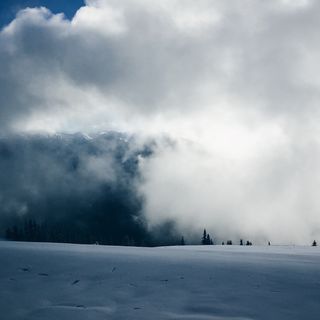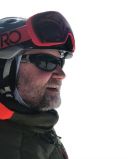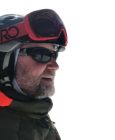Depression
Snowsports vs. Depression
New research suggests skiers are less depressed than non-skiers
Posted January 27, 2020 Reviewed by Kaja Perina
Can snowsports lower the incidence of depression? A recent large-scale Swedish study confirms as much. By observing participants in an annual long-distance cross-country ski race over a twenty-year period—and comparing them to a non-skiing group—researchers discovered that the skiers suffered 50 percent less depression. (This study, conducted at Lund and Uppsala Universities, also found a much lower risk of developing vascular dementia in the skiing group.)
Anyone who skis or snowboards knows that it brings lasting health, happiness and a sense of purpose. A case in point is Quebec-born, British Columbia-based pro snowboarder Marie-France Roy (or MFR as she is known) who won early acclaim as an X Games competitor before transitioning into backcountry snowboarding films. Frequently topping reader polls for Athlete of the Year and Video Part of the Year in industry publications, today she lives in a sustainable cob home that she built on Vancouver Island.

I asked MFR to describe the role of mountains and snowsports in her life. ‘When my parents separated when I was nine, my mother left, and the mountains saved us,’ she said. Her father raised MFR and her two older brothers and needed a way to keep everybody, including himself, active. ‘My Dad said, “If we’re going to pick a sport, I want it to be one I can do, too. So if the three of you help me clean the house, and stack wood, I will get you season passes every year [at Le Massif de Charlevoix ski resort, northeast of Quebec City] as long as you get summer jobs to help pay for your gear.” And so of course we were stoked and that was the start for me, going to Le Massif every weekend, trying to keep up with my brothers and their friends…I don’t know where I’d be today if it wasn’t for that.
‘As a kid it gave me so much because I was very shy and snowboarding gave me something—all of a sudden I was good at something. I was so intimidated by my brothers’ friends but it pushed me to become comfortable in uncomfortable situations. And it made me want to travel to other mountains. I never intended to become a snowboarder for a living.

Initially, I studied Ecology but I decided to take a year in Whistler to experience the mountains before I got a real job. That’s when my whole path changed. I entered a few events, it went really well, I got sponsored, I got to travel, and since then my life has really been in the mountains. High up in the alpine, the closest to the top of the atmosphere, this is where the snow melts into the rivers, and then the rivers become our water source. It all starts here.’

I asked MFR to take us inside a big-mountain wilderness snowboarding trip. ‘We traversed Olympic National Park around Mount Olympus [in northwest Washington State] for eight days in spring 2018 for Patagonia,’ she said. ‘It’s not a common route, it’s way out there and we had to explain to the rangers where we were going and they were like, “No one goes there, there are no trails!”. They didn’t want to give us the permit. One of my friends had snowboarded on Mount Denali and the other had done a lot of glacier camping and he said, “We’ve studied this!” And so they let us go. It was one of the most fabulous experiences of my life but it was really hard: halfway through our mission we almost turned around due to weather, and we only had a certain amount of food and if we kept going we might run out. Some of the glacier terrain was a big question mark, most of the route was bushwhacking, we got lost a few times, we splitboarded all the way up this glacier only to realize that we didn’t have to…once we looked over the edge it was sheer cliffs. But I love not knowing what’s beyond the edge.’

A further dimension of high-altitude snowsports centres on human-to-human interaction. MFR explained: ‘[A ski/snowboard expedition is] a great way to meet people and connect with people in a really healthy environment. Meeting in the mountains is probably the best Tinder there is…you can’t get away with as much in the mountains. If you’re not respectful or behaving a certain way, you might not get invited again. There are consequences; you have to behave. And learn from each other. At first you have to go with people who are better than you. And that starts a cycle of learning and teaching.’


